The Best Sawmills for Your Homestead
- July 4, 2023
- 0 comment
Starting a homestead means embracing a life where you work closely with nature, often including the need to handle your own lumber. Whether you’re building a cabin, crafting furniture, or fencing your land, having the right sawmill turns raw trees into ready-to-use lumber. In this guide, we’ll explore the top sawmills perfect for any homesteader looking to become truly self-sufficient. These powerful tools are essential for anyone ready to take their homesteading projects from dream to reality. Let’s dive into finding the best sawmill to help you carve out your piece of paradise!
List of Best Sawmills for Your Homestead
1. Wood-Mizer LT15: The Workhorse of Your Homestead
Product Specifications
- Type: Portable band sawmill
- Max Log Diameter: 28 inches
- Max Log Length: 17 feet 8 inches
- Engine: Gasoline options from 10HP to 25HP
- Blade Length: 158 inches
- Dimensions: 96”L x 70”W x 60”H
- Weight: Approximately 600 lbs (varies with engine option)
Things I Liked About This Product:
- Despite its size, it can handle logs up to 28 inches in diameter and 17 feet 8 inches in length. This impressive capability opens up a lot of possibilities for various projects.
- The LT15 is designed with user-friendliness in mind. Its straightforward controls make it accessible to users with different skill levels.
- Built with high-quality materials, it is designed to withstand long-term use, making it a valuable, long-lasting investment for any homestead.
Simplicity and efficiency come together in the Wood-Mizer LT15. This portable sawmill can handle logs up to 28 inches in diameter and 17 feet 8 inches in length, providing the perfect balance between compact design and impressive capability. Easy to operate and boasting a strong reputation for long-term use, the Wood-Mizer LT15 truly shines for small-to-medium-sized projects, giving you the versatility you need to construct anything from a cozy log cabin to bespoke furniture pieces.
Pros
- The Wood-Mizer LT15 is known for its sturdy construction and durability, making it suitable for heavy-duty use on a homestead.
- This sawmill can handle large logs and has a high cutting capacity, allowing for efficient processing of timber.
- The LT15 is equipped with advanced features like adjustable blade height and accurate measuring systems, ensuring precise cuts and minimizing wastage.
- The LT15 is designed to be portable, making it convenient for moving around the homestead or taking it to different locations.
- Wood-Mizer offers various accessories and upgrades that can be added to the LT15, allowing users to tailor the machine to their specific needs.
Cons
- The LT15 is a high-quality sawmill, but its premium features come at a higher price point compared to some other options on the market.
- While the LT15 is user-friendly, operating a sawmill requires knowledge and experience to ensure safe and efficient operation.
- Although the LT15 can handle large logs, it may have limitations when it comes to extremely large or irregularly shaped logs.
2. Norwood LumberMate LM29: The Master of Versatility
Product Specifications
- Type: Portable band sawmill
- Max Log Diameter: 29 inches
- Max Log Length: 22 feet with the available bed extensions
- Engine: Gasoline options from 14HP to 18HP
- Blade Length: 144 inches
- Dimensions: 192”L x 71”W x 61”H
- Weight: Approximately 800 lbs (varies with engine option)
Things I Liked About This Product:
- It can handle larger logs—up to 29 inches in diameter and 22 feet in length—which allows for larger-scale projects.
- The range of optional attachments allows the LM29 to be adapted for various types of projects.
- he LM29 is known for its reliability, providing consistent performance over time.
Designed to accommodate larger projects, the Norwood LumberMate LM29 is a standout choice for those looking to expand their homesteading horizons. With the capacity to manage logs up to 29 inches in diameter and 22 feet in length, this portable sawmill doesn’t just process lumber—it gives you the freedom to dream big. Reliable and user-friendly, the Norwood LumberMate LM29 comes with a range of optional attachments for added versatility, ensuring no project is out of reach.
Pros
- The Norwood LumberMate LM29 is known for its versatility, allowing for a wide range of cutting options, including dimensional lumber, wide boards, and slabs.
- The LM29 is designed with user-friendliness in mind, making it suitable for both beginners and experienced operators.
- This sawmill is relatively lightweight and can be easily transported, making it convenient for small-scale operations or homestead use.
- The LM29 offers good value for money, providing a balance between affordability and features.
- Norwood offers a range of optional attachments and upgrades, allowing users to expand the capabilities of the LM29 as needed.
Cons
- Compared to larger and more expensive sawmills, the LM29 has a relatively lower cutting capacity and may not be suitable for high-volume production.
- Similar to the Wood-Mizer LT15, the LM29 may have limitations when it comes to extremely large or irregularly shaped logs.
- While the LM29 can perform basic milling tasks, some users may find the need to purchase additional accessories to enhance its functionality.
3. Hud-Son Hunter Sawmill: The Budget-friendly Powerhouse
Product Specifications
- Type: Portable band sawmill
- Max Log Diameter: 21 inches
- Max Log Length: 9 feet
- Engine: 6.5HP Gasoline engine
- Blade Length: 132 inches
- Dimensions: 150”L x 60”W x 52”H
- Weight: Approximately 525 lbs
Things I Liked About This Product:
- The Hunter Sawmill provides a good balance between cost and capability, making it a great option for those on a budget.
- Its small size and portability make it suitable for smaller homesteads or for those who need to move their sawmill frequently.
- It’s designed to be easy to use, making it a great option for beginners.
Living on a budget doesn’t mean you need to compromise on your self-sufficient dreams. The Hud-Son Hunter Sawmill is a testament to this, offering a more affordable option without skimping on durability and reliability. Designed for smaller projects, this portable sawmill can handle logs up to 21 inches in diameter and 9 feet in length. Its compact design and ease-of-use make it an ideal choice for those just embarking on their homesteading journey.
Pros
- The Hud-Son Hunter Sawmill is known for its competitive price point, making it a budget-friendly option for those with cost constraints.
- This sawmill is lightweight and designed for easy transportation, making it suitable for small-scale operations or mobile use.
- The Hunter Sawmill is easy to set up and operate, requiring minimal technical knowledge or experience.
- While not as high as larger and more expensive models, the Hunter Sawmill still offers a respectable cutting capacity for small to medium-sized logs.
- Hud-Son has a reputation for providing responsive customer support, assisting users with any issues or questions they may have.
Cons
- Compared to higher-end models, the Hunter Sawmill may not have the same level of durability and longevity.
- The Hunter Sawmill may have fewer options for customization or upgrade compared to some other sawmills on the market.
- The simplicity of the design may result in slightly less precise cuts compared to more advanced models with additional features and adjustments.
4. Timber Tuff TMS-36: The DIY Spirit Incarnate
Product Specifications
- Type: Portable chainsaw mill
- Max Log Diameter: 36 inches
- Max Log Length: Dependent on the chainsaw bar length
- Compatible Chainsaw Power: 50CC or greater recommended for optimal performance
- Blade Length: Not applicable (chainsaw dependent)
- Dimensions: 35.5”L x 12.5”W x 18”H
- Weight: Approximately 18.8 lbs
Things I Liked About This Product:
- As a chainsaw mill, the TMS-36 allows users to utilize a tool they likely already have, making it a cost-effective option.
- Its light and compact design makes it highly portable and easy to store when not in use.
- It can handle logs up to 36 inches in diameter, making it suitable for a wide range of projects.
The Timber Tuff TMS-36 is a portable chainsaw mill that taps into the true DIY spirit of homesteading. Perfect for those who already own a chainsaw and want to maximize their resources, this sawmill can manage logs up to 36 inches in diameter. The length capacity might be limited by the length of your chainsaw bar, but it doesn’t limit your imagination or determination. Simple, affordable, and effective, the Timber Tuff TMS-36 embodies the heart of self-sufficiency.
Pros
- The Timber Tuff TMS-36 is one of the most affordable options on the market, making it accessible for those on a tight budget.
- This sawmill is designed with simplicity in mind, making it suitable for DIY enthusiasts or beginners with limited experience.
- The TMS-36 is lightweight and can be easily transported, allowing for on-site milling or mobility.
- While not as high as larger models, the TMS-36 can handle small to medium-sized logs for basic milling needs.
- If you have occasional milling needs or only require small quantities of lumber, the TMS-36 can be a cost-effective solution.
Cons
- The lower price point of the TMS-36 often translates to lower build quality and durability, which may result in a shorter lifespan compared to higher-end models.
- This sawmill lacks some of the advanced features and adjustments found in more expensive options, potentially limiting precision and customization.
- The TMS-36 may have limitations when it comes to processing larger or irregularly shaped logs, reducing its versatility.
Conclusion: Choose Your Tool, Shape Your World
Choosing the right sawmill for your homestead is a crucial step towards achieving your woodworking dreams and shaping your environment. It’s a decision that should be guided by several key factors to find the best fit for your needs and lifestyle.
Your budget is a primary consideration; sawmills vary in price, so it’s important to balance what you can afford with the features you need. The scale of your projects also plays a critical role. For larger, more frequent woodworking tasks, you’ll need a robust sawmill capable of handling big logs and churning out ample lumber. For smaller projects, a compact and portable sawmill might just do the trick.
Consider your physical ability and how much manual labor you’re willing to invest. Sawmills range from fully manual operations, which require significant physical effort, to automated models that do much of the heavy lifting for you. Also, think about the versatility of the sawmill—whether you need various cutting options or if a simpler model will meet your needs.
Safety should never be overlooked. Woodworking can be dangerous, so ensuring you follow safety protocols and use a sawmill that emphasizes user safety is vital.
By thoughtfully considering these aspects—your budget, project size, physical effort, versatility, and safety—you can select the ideal sawmill for your homestead. With the right sawmill, you’re not just cutting wood; you’re crafting the foundation of your self-sufficient lifestyle, enabling you to build and create with the resources from your own land.
FAQs
- What is a sawmill, and why do I need one for my homestead? A sawmill is a machine used to cut logs into lumber. Having a sawmill on your homestead allows you to process your own timber, providing you with a sustainable source of lumber for various construction and woodworking projects.
- Should I choose a portable or stationary sawmill for my homestead? The choice between portable and stationary sawmills depends on your specific needs. Portable sawmills are more versatile and can be easily moved around your property or taken to remote locations. Stationary sawmills offer greater capacity and efficiency but require a fixed location for operation.
- What types of sawmills are available for homestead use? There are several types of sawmills suitable for homestead use, including band sawmills, circular sawmills, and chainsaw mills. Band sawmills use a rotating band saw blade, circular sawmills utilize a circular saw blade, and chainsaw mills employ a chainsaw to make cuts.
- What factors should I consider when choosing a sawmill for my homestead? Key factors to consider include the size and type of logs you plan to mill, your budget, the amount of available space, your desired level of portability, the power source (electric, gas, or manual), and the ease of operation and maintenance.
- How much does a homestead sawmill cost? The cost of a sawmill varies depending on its size, features, and brand. Portable sawmills can range from a few thousand dollars to tens of thousands of dollars, while stationary sawmills typically cost more due to their increased capacity and efficiency.
- What kind of maintenance is required for a homestead sawmill? Regular maintenance tasks for a sawmill include blade sharpening or replacement, lubrication of moving parts, cleaning debris from the cutting area, and inspecting and tightening any loose bolts or components. Following the manufacturer’s guidelines for maintenance is essential.
- Are there safety considerations when operating a sawmill? Yes, operating a sawmill involves inherent risks, and safety precautions must be taken. Always wear personal protective equipment, such as goggles, ear protection, gloves, and a hard hat. Familiarize yourself with the sawmill’s safety features and follow proper operating procedures.
- Can I use a sawmill to cut wood for purposes other than construction? Absolutely! A sawmill allows you to cut lumber for various purposes, such as building structures, crafting furniture, creating fencing, making firewood, or even selling excess lumber for additional income.
- Are there any local regulations or permits I need to consider before setting up a sawmill on my homestead? Local regulations and permits may vary, so it’s crucial to check with your local zoning or building department. Some areas have restrictions on noise, emissions, or operating machinery, so it’s important to ensure compliance with any applicable regulations.



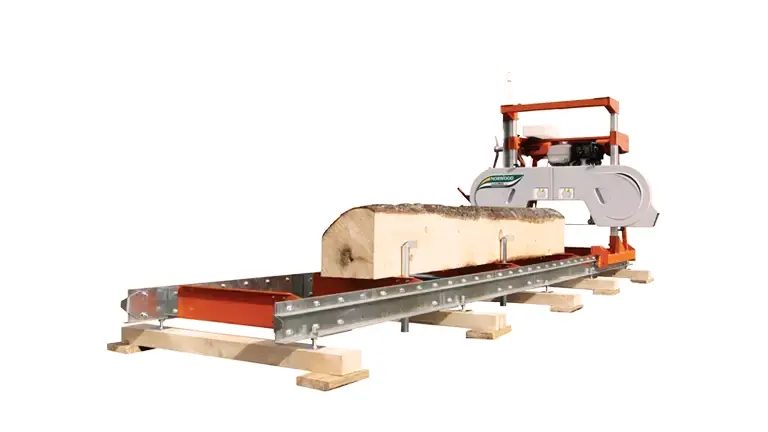
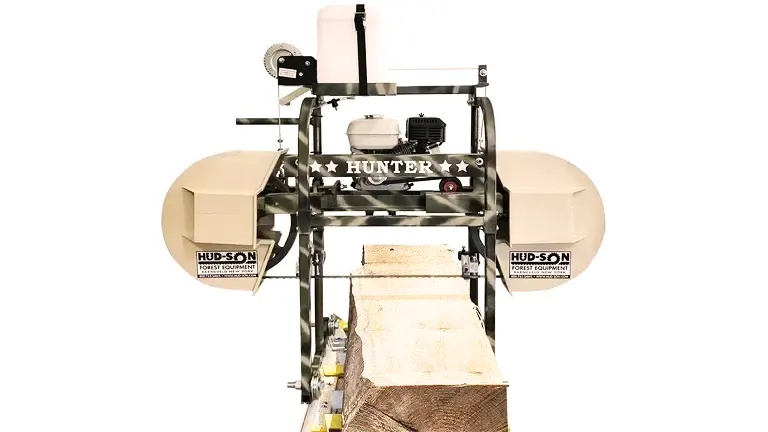
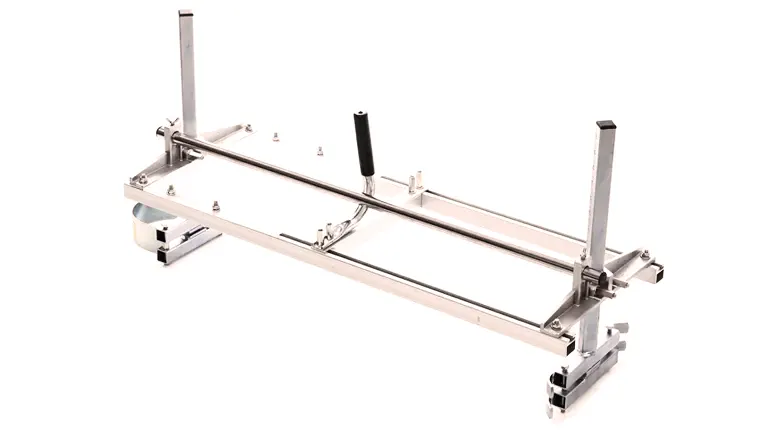



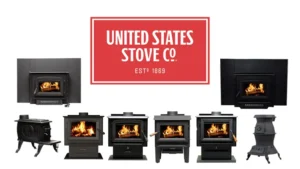
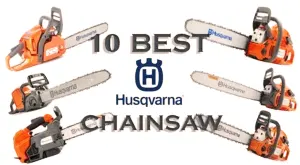







Leave your comment